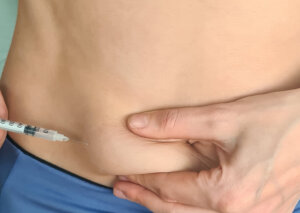Egg freezing offers women the opportunity to preserve their fertility by freezing eggs for future use.
Starting a family at the right time is entirely possible with a plan. This article offers a detailed guide on the egg-freezing process. From the timeline and steps involved to managing injections, determining the number of cycles to consider, and understanding success rates, you’ll have all the necessary information to make informed decisions about egg freezing.
Egg Freezing Timeline

The entire egg-freezing process takes about 2 to 3 months to complete from your initial consultation to egg retrieval.
You will start by meeting with a fertility specialist who will initiate an evaluation of your reproductive status. They will be getting an idea of how many eggs could be retrieved in one cycle and give a recommendation as to how many cycles you may have to undergo based on your age and reproductive potential.
After your consultation and initial evaluation, you’ll begin a treatment process (between 10 to 12 days) by taking a series of injectable fertility medications to prepare your body for egg retrieval. During that time, you’ll also have regular visits with your fertility specialist to complete ultrasounds and collect bloodwork to monitor the progress of treatments.
Next, once the physician decides that your eggs are ready for retrieval, a trigger shot will be administered that begins the final maturation period of the eggs.
Lastly, 36 hours after receiving the trigger shot, you’ll go in for your egg retrieval appointment to extract each egg from follicles within the ovary. The eggs will be sent to a lab to be frozen and stored for future insemination.
Managing Injections
One of the most daunting experiences throughout the egg-freezing process involves keeping track of all the injections needed for a successful treatment course. Managing these medications can initially feel overwhelming, but your navigator at ORM will help you understand and feel comfortable administering these medications on your own.
It can be confusing to understand each medication, but with the right insight, managing injections becomes easier to understand and administer yourself.
Types of injections
During the 10-12 day process of your egg freezing experience, you’ll self-administer injections that speed up your hormones to rapidly prepare the ovaries for egg retrieval.
- Gonadotropins: These represent follicle-stimulating hormones (FSH) and luteinizing hormone (LH) that are typically produced by the pituitary. These medications will help your ovarian follicles grow in synchrony together.
- GnRH agonists/antagonists: These medications are utilized to prevent you from ovulating on your own.
- Trigger Shots: These represent the final injection needed at the end of the egg-freezing cycle to ensure final maturation before going to egg retrieval.
Tips for Injections

It’s important to know upfront that you will be self-administering many injections throughout your egg-freezing journey. However, don’t let this scare you! There are instructions to help through every step of the way, from initial injection to storage and disposal of medications.
Now, the amount of injections needed for egg freezing is different for everyone based on their needs. Still, in most cases, daily medications range from one to five injections throughout the 10-12 day treatment timeline. These injections are subcutaneous and administered in the belly or thigh, and your clinic or pharmacy will provide detailed instructions on how to best handle the process.
Remember, injecting these medications yourself can be a challenge if you’re uncomfortable with needles. It’s recommended that a trusted friend or partner assist you with the injections if you need moral support. You can also contact your fertility specialist to ask any questions to guide you through the steps!
In terms of dosages, the monitoring appointments you have with your fertility expert will determine your level of medication and dosage. Once this information is decided, it’s sent to your pharmacy, where you can pick it up in person or by mail.
For disposal of medication, your pharmacy may provide a sharps container or biohazard container to properly dispose of your needles. Afterward, you can take that container to your fertility clinic for further disposal. You can also take your sharps containers to hospitals, pharmacies, health clinics, medical waste facilities, police stations, or fire stations for disposal.
Coping Strategies for Potential Injection-related Side Effects
Overall, egg-freezing treatments are relatively safe. However, having issues with bloating or mild discomfort is normal.
In some cases, ovarian hyperstimulation syndrome (OHSS) may occur from ovarian stimulation treatment. OHSS is a health complication that occurs when the ovaries are swollen, causing pain and discomfort due to accelerated egg production. Despite the issues, OHSS is mainly considered a mild complication. There are rare cases where OHSS can become life-threatening, but during your checkups throughout the egg-freezing process, your fertility doctor can monitor your symptoms and treat them accordingly.
How Many Egg Freezing Cycles Should You Consider?

Research shows that having a live birth from a frozen egg has a 39% chance of success. However, this success rate depends on several factors, including age, reproductive health, and how your body responds to treatment.
Egg freezing at a younger age is recommended due to harvesting multiple healthy eggs early on. But no matter how many eggs are retrieved, only a handful may be healthy enough to develop into embryos. With that in mind, speak with your fertility specialist to see how many egg-freezing cycles you should go through to extract as many healthy eggs as possible. And as long as you pay your yearly storage fees, you can trust that your frozen eggs are protected and ready for insemination whenever you are.
Factors That Impact the Success Rate
Lastly, there are many influential factors that can impact your success rate if you’re not careful.
For example, a healthy, active lifestyle is recommended for those who want to undergo egg freezing. This means eating a healthy diet of rich nutrients, amino acids, and proteins to ensure healthy egg development. Routine exercise or daily physical activity (mild activities like yoga or walking) is also beneficial for mental and physical health. It’s important to refrain from stressful situations or stress-coping habits such as drinking alcohol or smoking cigarettes.
Is Egg Freezing Right for You?
You have the freedom to start your family on your timeline.
If you think egg freezing is right for you, then consult with ORM Fertility to provide personalized guidance for your fertility journey.



